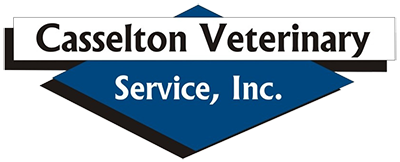Site Menus Section Skip to page content

Site Accessibility Features: Skip to page menus
Site Menus Section Skip to page content

Afoxolaner + milbemycin oxime is a heartworm disease preventive that also treats certain internal parasites and controls fleas and ticks in dogs. It is also used off-label to treat mite infestations in dogs. Certain dog breeds are more sensitive to milbemycin oxime than others; your veterinarian will advise you on the safety of milbemycin oxime use in your dog.
Anaplasmosis is a tick-borne disease caused by the infectious bacterial organism Anaplasma phagocytophilum. It is transmitted through bites of the deer tick (also known as the black-legged tick) and the Western black-legged tick.
Capillaria is a small internal parasite, often less than half of a centimeter in length. They are closely related to intestinal worms, though they can live in a variety of locations within the body. Diagnosis can be difficult because the eggs of Capillaria are shed only on an intermittent basis. While the parasite is easily eliminated with a dewormer, your dog may require additional medications to decrease the inflammation associated with the infection.
Cheyletiellosis is an uncommon but highly contagious skin parasite of dogs, cats, humans, and rabbits, caused by Cheyletiella mites.The most important clinical sign is scaling or dandruff. Cheyletiella mites are susceptible to most topical insecticides and the prognosis is excellent.
Coccidiosis is an intestinal tract infection caused by a single-celled organism (protozoa) called coccidia. Coccidia are microscopic parasites that live within the cells that line the intestine. The most common clinical sign of coccidiosis is diarrhea, but most dogs have no clinical signs.
Cryptosporidium is a species of single-celled parasite that can infect your dog through the gastrointestinal tract. Clinical signs such as diarrhea and weight loss may only be seen in immunosuppressed patients, including puppies. These patients may need supportive care and other treatment to control disease. Certain Cryptosporidium species can be spread between pets and humans, making this parasite zoonotic.
Cuterebra is the scientific name of the North American rabbit or rodent botfly. Dogs are accidental hosts of Cuterebra larvae (also called warbles). Botfly larvae encyst (burrow in) the skin. A small “breathing hole” is often visible in the skin over the warble, and this hole can become infected when the larvae matures and leaves. Signs and treatment are discussed.
Demodectic mange is caused by a parasitic mite that lives in the hair follicles of dogs. As long as the body's immune system is functioning properly, these mites cause no harm. Demodectic mange most often occurs when a dog has an immature or weakened immune system, allowing the number of skin mites to increase rapidly. Topical, oral, and injectable medications are available to treat demodectic mange.
Diarrhea is a symptom of an underlying problem that may be minor or very serious. Some cases may resolve on their own or with minimal treatment, while other cases require in-depth diagnostic testing and more aggressive treatment to address the underlying condition. The possible causes, diagnostic tests, and treatment protocols for diarrhea in dogs are numerous and are explained in this handout.
The ear mite is a surface mite that lives on cats, dogs, rabbits, and ferrets. It is usually found in the ear canal, but can also live on the skin surface. Mites are barely visible to the naked eye. Clinical signs of infestation may include ear irritation leading to scratching at the ears or head shaking, dark discharge from the ear, areas of hair loss from self-trauma, a crusted rash around or in the ear, or aural hematoma.
Site Sidebar: Skip to end of sidebar
Search Articles
Filter By Species
View All
910 Governor’s Dr. Casselton, ND 58012 Phone: 701-347-5496 Fax: 701-347-5453
Email: clientservices@cassvetservice.com
Hours Mon-Fri: 7:00am – 5:00pm Sat: Closed Sun: Closed
5012 47th St. S. Fargo, ND 58104 Phone: 701-895-2135 Fax: 701-809-9430
Email: clientservicesfargo@cassvetservice.com
Hours Mon: 7:00am – 10:00pm Tues: 7:00am – 10:00pm Wed: 7:00am – 10:00pm Thurs: 7:00am – 10:00pm Fri: 7:00am – 10:00pm Sat: 9:00am – 10:00pm Sun: Closed
5012 47th St. S. Fargo, ND 58104 Phone: 701-895-2135 Fax: 701-809-9430
Email: boardingandgrooming@cassvetservice.com
Hours Monday – Friday: 7:30am – 6:30pm Saturday: 8:00am-12pm & 4:00pm – 6:00pm Sunday: 8:00am-12:00pm & 4:00pm – 6:00pm
These hours reflect drop off and pick up times. Outside of these times we are busy caring for your furry friends and will return messages as soon as we can.
© 2025 Casselton Veterinary Service. Provided by Covetrus | Powered by LifeLearn WebDVM